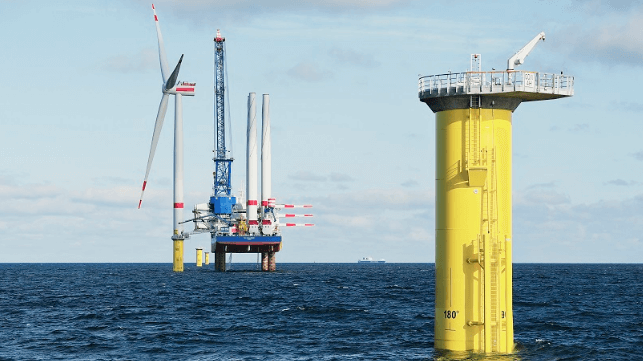Ørsted Takes $1.7B Charge in Q4 Citing Decline in Value of US Seabed Leases

Ørsted which is focused on offshore and onshore wind farms, solar farms, energy storage facilities, renewable hydrogen and green fuels facilities, disappointed investors by announcing on Monday, January 20, an additional $1.7 billion in impairment charges. The company cited developments relating to the interest rate increases, the declining value of its U.S. seabed leases, and costs related to the construction of Sunrise Wind, a project located roughly 30 miles off the coast of New York.
“The impairments announced today, and especially the continued construction challenges, are very disappointing,” said Mads Nipper, Group President and CEO of Ørsted. He however noted, “We remain committed to the U.S. market in the long term with its potential for renewables to meet the growing electricity demand.”
The comments came on the same day as Donald Trump returned to the presidency and quickly moved to reign in future development. In an executive order, Trump moved to end future leasing of U.S. federal lands for wind farms, but experts question the administration’s ability to cancel existing leases. However, it is expected they will slow-walk future construction permits and cancel tax incentives.
Ørsted attributed $490 million of the planned charges to “market-informed valuation indications for our seabed leases located off the coasts of New Jersey, Maryland, and Delaware, which reflect prevailing market uncertainties among other factors. While this impairment substantially reduces the book value of the seabed leases, we believe the leases continue to hold strategic optionality and value, based on the long-term potential of the US offshore market.”
The company also cited U.S. interest rates which it said led to a 75-basis-point increase in the weighted average cost of capital. The increase adversely impacted the value-in-use for the U.S. portfolio, primarily the offshore wind projects, leading to a further $600 million of the total impairment charge.
Sunrise Wind, which followed Revolution Wind into construction is progressing on “a tight construction schedule and is navigating challenges related to supply chain and construction,” said Ørsted. It reported a reassessment of the Sunrise Wind project to include schedule delays and increased costs based on the experiences with Revolution Wind.
The expected commissioning of Sunrise Wind they reported has been delayed into the second half of 2027. High costs are expected for the project in part due to increases for the monopile foundations to keep fabrication and installation on track with Ørsted saying it will result in a further $600 million of the total impairment charge.
“We continue to navigate the complexities and uncertainties we face in a nascent offshore industry in the new US market,” Nipper said.
The company however emphasized that operating profits for 2024 will be in line with guidance. They reported that operational earnings from offshore and onshore were the main contributors and delivered in line with its expectations.
The company’s stock price has been under pressure due to the continued challenges in the execution of its strategy. The price of the stock is down by a third in the past six months, having lost more than 17 percent in the past month.
This marks the second major impairment charge recorded by the company. In 2023, it recognized more than $3.7 billion for impairments related in large part to the cancelation of Ocean Wind 1 which would have been built off New Jersey. It also included more than $1.3 billion in fees and costs for 2023 associated with changes in its wind farm portfolio.
